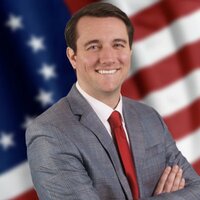What's Driving Speech Codes and Bank Failures -- It's All the Same Problem
Neil Patel
Why are so many institutions and government agencies all of a sudden interested in regulating speech? Why is so-called misinformation a much bigger issue today than it was in the past? The answer you hear most often is that the efficiency of mass communication through social media has necessitated restrictions on speech. Misinformation flows rapidly now over the internet, so the government has to regulate it. That's what they tell us.
This is a bogus argument. The truth has a way of winning out in a true marketplace of ideas. The truth flows just as rapidly through the now-efficient means of communications as the lies. That was true before the internet, and it's true today.
The real reason for all the new speech restrictions is a breakdown in trust. The American people have lost trust in their leaders and their institutions. Many are at the point where they don't believe anything they are told through official channels. For years now, trust in America's leaders and top institutions has been in freefall. Nobody denies this, yet based on their actions, those leaders and institutions don't seem to care. They make no effort to address the issue; in fact, they continue to make it worse. They don't answer obvious questions. They hide. They pack their press briefings with toadies who won't ask real questions. They dodge legitimate requests for information. In short, they keep taking actions that increase the perception that the system is rigged.
The breakdown in trust can be traced back to the original government bank bailouts. Those bailouts were predicated on the notion of "systemic risk" to our economy. The idea was that some financial institutions are so big that their failure would cause a chain reaction of failures, taking down the financial system and destroying the broader economy. This concept can be debated, but what can't be debated is the societal cost of bailing out the wealthiest individuals and firms without total transparency.
The fact that nobody really went to jail for causing the financial crisis bothered a lot of Americans. The fact that the very firms involved, from credit rating agencies to major banks, seemed to not just survive but thrive, as a result of the government bailouts funded by average Americans, rubbed most people the wrong way.
The most telling single anecdote of this entire episode was Treasury Secretary Hank Paulson having 24 phone conversations with the head of Goldman Sachs, his old bank, in just one week, five in just a single day, just as he orchestrated a bailout that netted the firm billions of dollars. Rather than suffer, its bankers were receiving record bonuses just a year later. When asked about this episode, Paulson's spokesperson said he couldn't answer questions because he was "busy writing his memoirs." It's now nearly 15 years later. Paulson still hasn't answered. Perhaps more troubling, there's little sign that the media has really pressed the issue. To be clear, I'm not alleging that Paulson is corrupt. There are many legitimate reasons he could have been talking to his former bank. I am suggesting that he owed it to the American people to describe every conversation in great detail when, as the top public official in charge of bailouts, he sent billions of dollars to his former firm, which he talked to up to five times a day at the heart of the crisis.
Ducking questions and not explaining these sorts of issues comes at a steep price. People lose the most necessary attribute of any democracy: trust in the system. In the financial crisis example, you can draw a clear line from these events to Occupy Wall Street to the Tea Party to the rise of Donald Trump. Once people lose faith, they grow desperate for options outside the system.
The most tangible real-world effect from the loss of faith is the nation's current posture toward free speech. There is no more bedrock American principle than freedom of speech. Once America's leaders lost the trust of the people, they lost their ability to compete effectively in the marketplace of ideas. Once the Food and Drug Administration said that opioids were safe, with the guy who said it taking a lucrative job for an opioid maker, people were a lot less likely to listen to them on vaccines. That's not complicated, but it seems lost on America's leaders.
Because they have lost the ability to persuade, they are turning to force. This dynamic, not the efficiency of communication over social media, is what's really driving the growing desire to regulate speech on social media and to stamp out so-called misinformation. Once trust is broken, leaders can't govern effectively. Force is the only solution. This is what's being tried in America today, and it's not working. Speech codes and health mandates are not going to work. They just make people angry.
If the destruction of bedrock American First Amendment principles aren't enough motivation for those in charge to start trying to rebuild trust, maybe the destruction of the American banking system will be. That's exactly what's happening today. What's at the core of banking? You guessed it: trust. People have to trust that this place where they send all their money will have it for them when they need it. Once they start doubting that, they pull their money out fast. This is the cause of the so-called bank run that hit Silicon Valley Bank. Sure, the American government can raise its bank insurance to cover all the losses, but then we no longer have a private banking system. We have a government-run utility. And what happens when people lose the ultimate trust even in the guarantee made by the U.S. government? That's lights-out America.
That's where we are heading. Trust must be restored, or there is no hope for America.
Neil Patel co-founded The Daily Caller, one of America's fastest-growing online news outlets, which regularly breaks news and distributes it to over 15 million monthly readers. Patel also co-founded The Daily Caller News Foundation, a nonprofit news company that trains journalists, produces fact-checks and conducts longer-term investigative reporting. The Daily Caller News Foundation licenses its content free of charge to over 300 news outlets, reaching potentially hundreds of millions of people per month.






You must be logged in to post stack comments. Please Login or Signup (free).